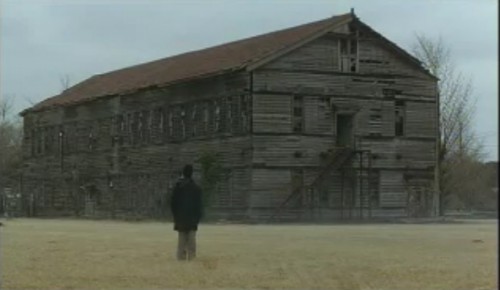The Whole Thing About Poetry
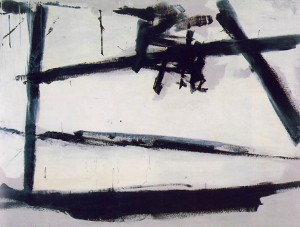 At the Juniper Festival a few weeks ago there was a panel about The Future of Poetry. The panelists were Evie Shockley, Cathy Park Hong, Heather Christle and Rebecca Wolfe. It was good, cutting edge, perhaps too polite but definitely the sort of thing that is supposed to happen at panels.
At the Juniper Festival a few weeks ago there was a panel about The Future of Poetry. The panelists were Evie Shockley, Cathy Park Hong, Heather Christle and Rebecca Wolfe. It was good, cutting edge, perhaps too polite but definitely the sort of thing that is supposed to happen at panels.
Rebecca Wolff said poetry doesn’t matter and it sucks that poets, who are smart and engaged people, are wasting their lives on something cloistered and anonymous (my words) when they should become civil servants, business people, people who can make a difference. Essentially, the world is missing the poet’s perspective in areas where they are needed.
I could be paraphrasing this in an unacceptable way, just so you know. But that was the gist. READ MORE >
Bad Houses
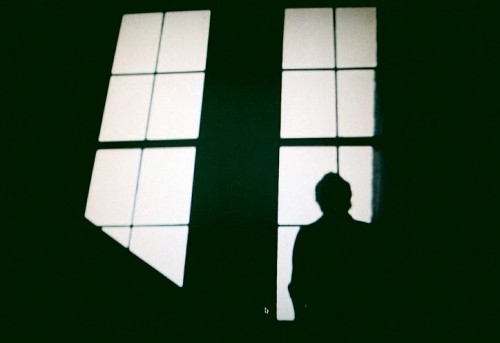
The Last House on Dead End Street
I found an interesting parallel in the two films from The List that I rented this weekend. They were Kiyoshi Kurosawa’s Cure and Roger Watkins’s The Last House on Dead End Street.
Central to both films are abadoned, decrepit buildings. In Cure—a serial killer film that is more about mood and psychological tension than the gorefest that is LHODES—it’s an old hospital.
“No One Can Advise Or Help You — No One”
 A friend recently sent along some wondering for submission to GIANT discussion. Their question (skip down to the blue if you want to avoid me getting off topic with brain science) maybe intersects Lily’s post yesterday about the definition (and neurobiology) of creativity. Is there “hardwiring” involved in our expression/communication motivations? Is that expression/communication goal-based or process-based? Do we need intense pompadours? I’m getting farther afield with each question I add to the question I haven’t even shown you yet, but I’ve been reading Antonio Damasio’s The Feeling of What Happens: Body and Emotion in the Making of Consciousness, which proposes (among many things) that emotions and feelings are different (emotions are in the body, feelings are the mind’s awareness of emotions), and that we evolved consciousness in order to be aware of our having feelings. Not just feelings, but our having of them. In other words, we have a mind in order to know how we feel. I can’t help but make lazy/lyrical connections between my anonymous friend’s question and those ideas, but I’m feeling too lazy/lyrical to do much besides wonder. I invite you, kind people, to do more. Here is my friend’s question:
A friend recently sent along some wondering for submission to GIANT discussion. Their question (skip down to the blue if you want to avoid me getting off topic with brain science) maybe intersects Lily’s post yesterday about the definition (and neurobiology) of creativity. Is there “hardwiring” involved in our expression/communication motivations? Is that expression/communication goal-based or process-based? Do we need intense pompadours? I’m getting farther afield with each question I add to the question I haven’t even shown you yet, but I’ve been reading Antonio Damasio’s The Feeling of What Happens: Body and Emotion in the Making of Consciousness, which proposes (among many things) that emotions and feelings are different (emotions are in the body, feelings are the mind’s awareness of emotions), and that we evolved consciousness in order to be aware of our having feelings. Not just feelings, but our having of them. In other words, we have a mind in order to know how we feel. I can’t help but make lazy/lyrical connections between my anonymous friend’s question and those ideas, but I’m feeling too lazy/lyrical to do much besides wonder. I invite you, kind people, to do more. Here is my friend’s question:
In 1903, a nineteen-year old poet by the name of Franz Xaver Kappus wrote to Rainer Maria Rilke to ask for that illustrious writer’s opinions on his poetry. To which Rilke famously replied, in part, to the now misremembered enquirer:
“No one can advise or help you – no one. There is only one thing you should do. Go into yourself. Find out the reason that commands you to write; see whether it has spread its roots into the very depths of your heart; confess to yourself whether you would have to die if you were forbidden to write. This most of all: ask yourself in the most silent hour of your night: must I write?”
Say, today, you weren’t forbidden but were encouraged. Say your writing was very aesthetically impressive, quite observably good. Say you wrote for yourself and no other. Say you had your reasons to write, including the reason that there were no inherent reasons to write, and you felt these very deeply, all the way to the heart. What if the question remained. Must you write?
Pier Paolo Pasolini on Writing
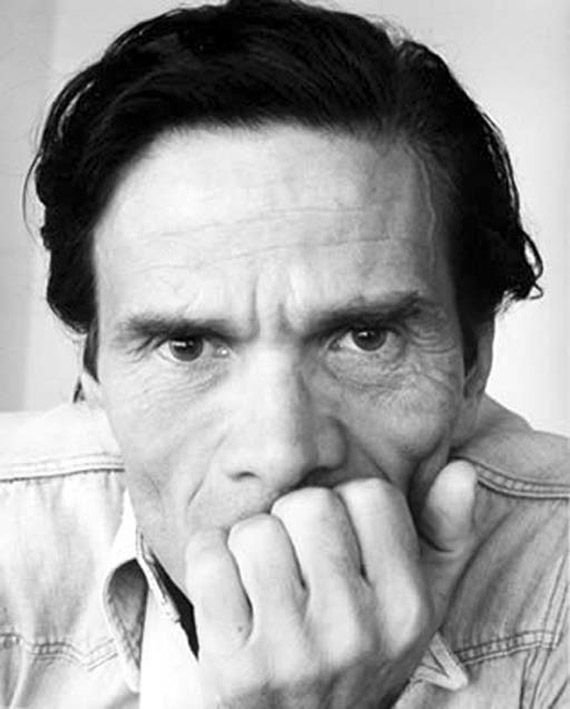
“One should never hope for anything.”
“If you know that I am an unbeliever, then you know me better than I do myself. I may be an unbeliever, but I am an unbeliever who has a nostalgia for a belief.”
“But I do not believe in a metaphysical god. I am religious because I have a natural identification between reality and God. Reality is divine. That is why my films are never naturalistic. The motivation that unites all of my films is to give back to reality its original sacred significance.”
“When I make a film, I shift into a state of fascination with an object, a thing, a fact, a look, a landscape, as though it were an engine where the holy is about to explode.”
“I am a murderer but I am a good person.”
“Don’t talk to me of the sea while we are in the mountains.”
“If I have access to an administrative council or a Stock Market maneuver, that’s what I use. Otherwise I use a crowbar. And when I use a crowbar, I’ll use whatever means to get what I want.”
“I say let’s not waste time placing nametags here and there. Let’s see then how we can unplug this tub before we all drown.”
Writing Prompt: You’re Wrong, Emily Dickinson!
Music For Real Airports from The Black Dog on Vimeo.
An electronic group called The Black Dog thinks that Brian Eno got it wrong. So they have tried to rectify the problem.
In 1978, Brian Eno released an album called Music for Airports. It’s a classic, a sacred cow of ambient music, written by the man who coined the term for the genre. It’s also meant to be used by airports, intended to be played to help release the tensions of travel.
That doesn’t sit right with The Black Dog. They have responded with Music for Real Airports. From their press release: “”Airports have some of the glossiest surfaces in modern culture, but the fear underneath remains. Hence this record is not a utilitarian accompaniment to airports, in the sense of reinforcing the false utopia and fake idealism of air travel. Unlike Eno’s Music For Airports, this is not a record to be used by airport authorities to lull their customers.”
Here’s a task. Take a classic piece of writing. Decide what you think it intends to do. (A famous—and very simple—example: Candide intends to satirize Gottfried Leibniz’s optimism, that we live in the best of all possible worlds*.) Disagree with that. Even if you agree with it, find a way to disagree with it. Embrace the contrarian within.
Not the most original prompt, I admit. But a slight twist on it, I hope.
* And, yes. Voltaire misunderstood Leibniz.
Art v. Politics (2): A Case Study
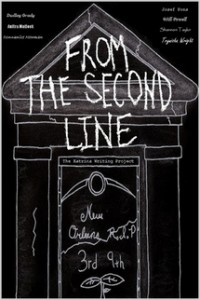 Yesterday, I wrote about my unwavering belief in the power of a serious engagement with the aesthetic to bring us closer to, as Sontag says, “a fuller humanity.” The comments on the post, especially regarding my claim that this is not a privileged position because all humans need beauty (in its most expansive, heart-changing sense), led me to think that I needed to back up the claim a little more.
Yesterday, I wrote about my unwavering belief in the power of a serious engagement with the aesthetic to bring us closer to, as Sontag says, “a fuller humanity.” The comments on the post, especially regarding my claim that this is not a privileged position because all humans need beauty (in its most expansive, heart-changing sense), led me to think that I needed to back up the claim a little more.
Four years ago, brilliant anthropologist Laura Jones and I decided that we wanted to do something to contribute to the recovery of New Orleans, a city dear to both of us.
We secured funding from Rice University to launch the Katrina Writing Project. Then we partnered with a charter school whose students were doing summer internships related to Katrina relief. During the summer, we taught the students to write personal essays about their Katrina experiences, which we then collected, published, and distributed to educators worldwide. You can download the collection here for free.
From this experience originate my beliefs about the vitalness of art in a broken world.
Our students had endured unthinkable tragedy and cruelty.
Dudley Grady’s family was turned away from a hotel only to see a white family check in moments later.
Josef Pons and his family were put on a plane. He writes, “The thing was, we didn’t know we were going to Arizona until we were in the air.”
Donnanice Newman writes, “When I finally got up, I noticed that my family was praying that the rest of our family was safe. I saw a policeman, and I asked him about New Orleans East. The policeman was talking about something that I kinda didn’t understand. But he finally said, “Baby, there ain’t no East.”
The alienation and separation of evacuation caused Anitra Matlock and her girlfriend to break up. Meanwhile, as she writes, “After the storm, random people felt that they needed to tell me why Katrina happened. The most memorable of reasons was that God sent the storm to cleanse the city of its homosexuals and sinners. If ever I needed to cry, it would be when I heard this, and when I saw my home.”
the “cute” avant-garde
 I have this thing against cuteness. Cuteness is dismissable, cast to the side as irrelevant. And I suppose, to be fair, what was the last cute thing you actually took seriously? There seems to be something inherent to cuteness that begs to be cuddled and pet, smooshed and distorted. Taken seriously, though, nah. Nope.
I have this thing against cuteness. Cuteness is dismissable, cast to the side as irrelevant. And I suppose, to be fair, what was the last cute thing you actually took seriously? There seems to be something inherent to cuteness that begs to be cuddled and pet, smooshed and distorted. Taken seriously, though, nah. Nope.
Art v. Politics: Not About Privilege
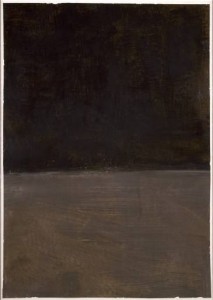 I’ve put my favorite Susan Sontag quotation in comment fields here, but I’m going to recall it again:
I’ve put my favorite Susan Sontag quotation in comment fields here, but I’m going to recall it again:
And the wisdom that becomes available over a deep, lifelong engagement with the aesthetic cannot, I venture to say, be duplicated by any other kind of seriousness. Indeed, the various definitions of beauty come at least as close to a plausible characterization of virtue, and of a fuller humanity, as the attempts to define goodness as such.
I believe this with every bit of me. And I am completely convinced that, as egregiously privileged as I am, this is not a privileged position. Susan Sontag had radical left politics, but she put the aesthetic first. She’s a lot smarter than me, but I’m still going to try to make some sense of that position here.
Politics are terminal. They are finite. We might say we are interested in raising questions when we talk about gender or race or other categories that are defined and upheld by politics. But politics is really about finding answers. This has its place, but its place is not in art.
Artists know that finding real answers is not possible in this world. The failure of politics to recognize this fact is why the lasting thing from any culture has been its expression. Desperate people turn to story, turn to verse, performance, art. When nothing is assured, when help doesn’t come, when standards aren’t met and good people suffer, the only thing left is to confront mystery, to confront tragedy and eternity.
The aesthetic means simply the representation of all this mystery, tragedy, eternity without the dissembling claim of wrapping them up neatly. Keying into the aesthetic instead of the political in a work of art is about asking what choices of form the art-maker made to best help the audience to access the mystery, the eternity. To help the audience feel human.
Sex and Brevity, Fracture and Complexity
Savannah Scholl Gruz questions if the elements of fiction are obsolete in a really interesting post on her blog. She asks, “But why, too, are stories so often about empty sex and blow jobs? Why are so many of them full of violence and figurative blind corners.” Her discussion expresses a real concern over the highly sexualized, fragmented short story and she also notes that, “Maybe we are the decade of fractured, sexual narratives in the same way that we have, in many ways, become a fractured and highly sexualized culture.”
As a writer who often writes sexual narratives, sometimes fractured in nature, but often times, linear and complex, I’m pretty intrigued by her commentary. Savannah asks if the proliferation of highly sexualized work is a deeper commentary on our culture, a reflection of this moment in time but I would say that literature has always been highly sexualized. It’s only the nature of highly sexualized work that continues to evolve. Similar concerns as the ones Savannah shares in her post were raised at the end of the 19th century, for example. Elaine Showalter’s Sexual Anarchy is a great book that looks at the evolving sexual culture of the fin de siecle and how those cultural changes manifested themselves in literature and popular culture.
Ron Artest on Writing
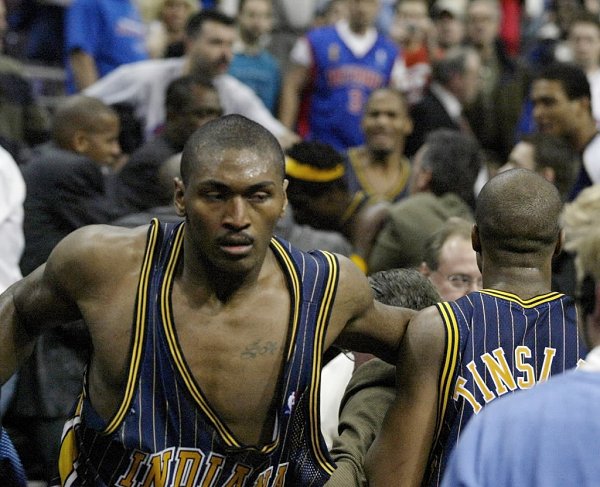
“We’ve got to find energy in an arena that is not our own.”
“I love the tension. I love when everything’s going wrong … In the NBA, they don’t promote guys like me. They like guys who like Cheerios, good guys. But I find a way to promote myself.”
“They killed us on the boards, but we kept playing. But that’s the game of basketball. If they kill you on the boards, there’s always something else you can do to win the game.”
“I was surprised he did that… I was ready for it.”
“I’m going to continue playing hard and out of control, like a wild animal that needs to be caged in. I’ll let the referees handle it.”
“I was just trying to do what I do.”
“Oh I’ve got all kinds of suits I’m gonna break out, yellow and orange, suede, velvet, and a cat in the hat suit.”
“I’m growing up, maturing, but at the same time I’m hood forever.”

